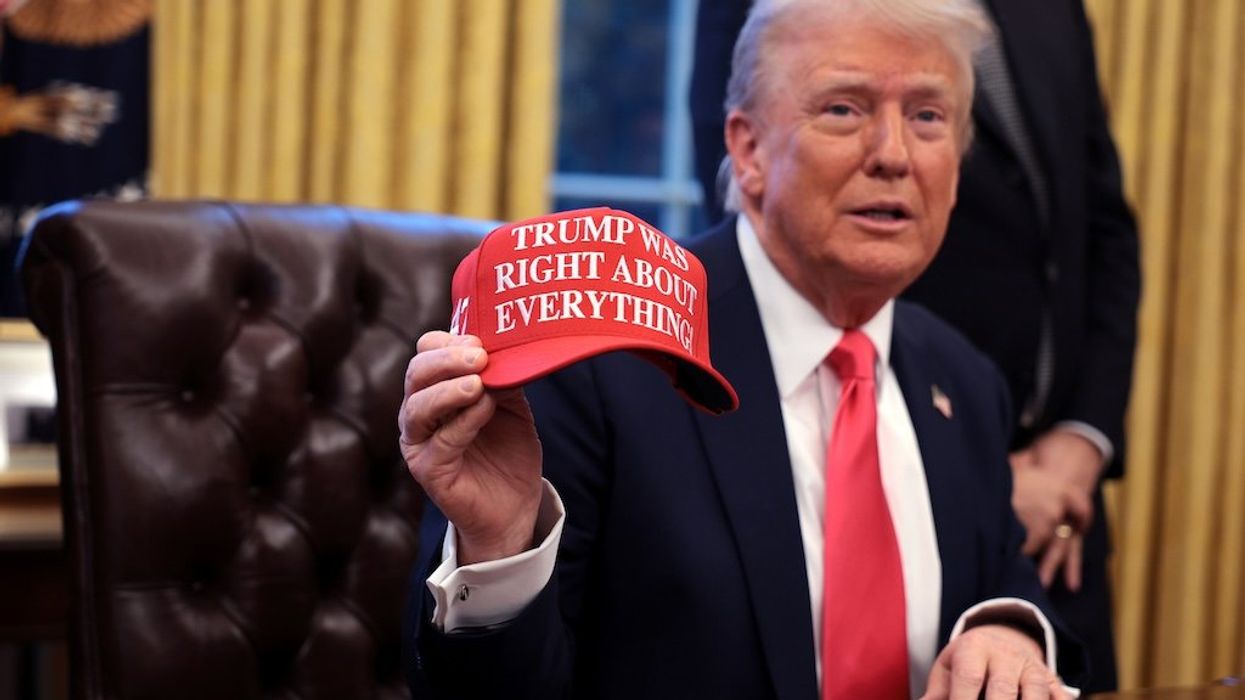
© 2025 Blaze Media LLC. All rights reserved.
 (Credit: AP)
(Credit: AP)
It’s been just over six years since an unassuming country doctor quietly announced his long-shot bid for the White House. Since that time, the movement Ron Paul spawned has taken over scores of Republican Party organizations across the country, won elections from local school boards to the US senate, gained a foothold on the Republican National Committee and made libertarianism a mainstream political school.
It was my great privilege to serve as that campaign’s special assistant – advancing over a dozen debates, running a national direct mail program and communicating with the activists that have gone on to remake the GOP and perhaps the country.
I had just finished a degree in Seattle when Paul campaign manager Lew Moore called and asked me to speak at an immigration forum in Everett Washington on Congressman Paul’s behalf. I didn’t know at the time that it would be the event that would change the course of my life. My speech was well received and I was hired to staff at the national campaign office in Arlington.
Arriving in Virginia, I found half a dozen people working out of two rooms in the back of a convenience store. No one could have predicted that those inauspicious beginnings would lead to a movement that would challenge fifty years of Republican orthodoxy, raise tens of millions of dollars and light the fires of liberty in the hearts of millions of people in America and beyond.
While Ron Paul may never have fully gone “mainstream,” he paved the way for those who have followed like his son Senator Rand Paul and the cadre of radical reformers including Mike Lee and Ted Cruz who are currently giving headaches to the old guard in the Senate.
Below the radar, the impact has been even greater. New leaders at the state, county and local level have flooded into the Party causing upheaval, but also changing many minds. State GOP organizations in Iowa, Nevada, Washington, Maine, Alaska and others are dominated by a new kind of Republican inspired by the message of Constitutionalism, free markets, and liberty while opposing endless foreign entanglements, paternalism and centralized power. Procuring those state positions has given the Paulians seats on the Republican National Committee and a voice in the future direction of the GOP.
But the greatest effect of Ron Paul may not be political per se. 2008 campaign staff assistant Andrew Ward recently observed:
“I think Ron had more cultural impact than he did mainstream political impact: he brought a lot of legitimacy to counter-cultural ideas. I think his influence is obviously reflected in the popularity of a few new liberty-minded GOP congress people, but more-so in the attitudes and language used by activists, radicals, families, farmers and entrepreneurs on the ground.”
I could easily add tax fighters, home school advocates, objectivists, Constitutionalists, TEA Partiers, non-interventionists, college students, and many others to that list.
I am reminded of the Eugene Debs, a socialist and perennial presidential candidate at the turn of the 19th Century. Debs never racked up big vote numbers, but every part of the socialist agenda on which his campaigns were based eventually became the law of the land. His ideas had a far bigger impact than the man.
So it may be with Ron Paul. As Alexis de Tocqueville observed inDemocracy in America, his seminal 1835 volume on the culture and governance of the United States, there are two separate and unique spheres of free speech, accepted speech and radical speech. One may speak within either sphere, but only within the accepted sphere will your ideas be taken seriously and gain the wide agreement to become law or a cultural norm. Radical speech is tolerated, but its speakers will have little influence.
What Eugene Debs and other radicals have shown us however is that change rarely comes from the sphere of accepted speech. New ideas are by their definition radical. In this may lay the real genius and the profound legacy of Ron Paul; pushing hard from the periphery of speech and making once extreme sounding ideas acceptable on their way to conventional.
Often repeated among our ragtag band of radical reformers in the two room office behind that Arlington convenience store was a quote from Margaret Mead, “Never doubt that a small group of thoughtful, committed, citizens can change the world. Indeed, it is the only thing that ever has.”
More Contributions From TheBlaze:
Want to leave a tip?
We answer to you. Help keep our content free of advertisers and big tech censorship by leaving a tip today.
Want to join the conversation?
Already a subscriber?
more stories
Sign up for the Blaze newsletter
By signing up, you agree to our Privacy Policy and Terms of Use, and agree to receive content that may sometimes include advertisements. You may opt out at any time.
© 2025 Blaze Media LLC. All rights reserved.
Get the stories that matter most delivered directly to your inbox.
By signing up, you agree to our Privacy Policy and Terms of Use, and agree to receive content that may sometimes include advertisements. You may opt out at any time.


